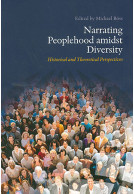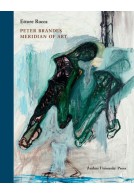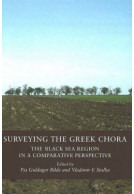Google Books previews are unavailable because you have chosen to turn off third party cookies for enhanced content. Visit our cookies page to review your cookie settings.
When Culture Becomes Politics (Paperback)
European Identity in Perspective
Imprint: Aarhus University Press
Pages: 311
Illustrations: b/w photos
ISBN: 9788779342828
Published: 1st September 2008
Script Academic & Professional
Pages: 311
Illustrations: b/w photos
ISBN: 9788779342828
Published: 1st September 2008
Script Academic & Professional
You'll be £22.75 closer to your next £10.00 credit when you purchase When Culture Becomes Politics. What's this?
+£4.99 UK Delivery or free UK delivery if order is over £40
(click here for international delivery rates)
Order within the next 6 hours, 34 minutes to get your order processed the next working day!
Need a currency converter? Check XE.com for live rates
(click here for international delivery rates)
Order within the next 6 hours, 34 minutes to get your order processed the next working day!
Need a currency converter? Check XE.com for live rates
What do Europeans have in common apart from the rights and duties deriving from the treaties? Is there such a thing as 'Europeanness' in the sense of a common identity? Can rights serve as a unifying factor in the new EU of 27 member states? And what are the sources of human identity as such? This book addresses these topical issues through a combination of theoretical and philo-sophical enquiry and empirical analysis. The nature of Political Man is investigated, as well as the sources of identity. The author argues in favour of a broad conception of political rationality and develops a new individualistic approach to the study of identity and culture summarised in the formulation "culture is choice -- and choice is culture". The notion that culture and identity are holistic phenomena, something that citizens have to accept as a kind of destiny, is challenged, because with the exception of gender, identity and culture are very much chosen. While the existing literature tends to define culture in terms of customs and habits, the author argues that the emphasis ought to be shifted towards subjective meanings and tastes (broadly defined). But choice is also culture in the sense that humans are cultural beings with cultural needs and the simplistic notions of rational choice and globalisation, which assume that human beings are utility maximisers in a narrow, materialistic sense, must therefore be abandoned. From this perspective European identity suddenly looks quite solid: It is based on a variety of sources of identity, and some of the strongest sources of identity are immaterial and cultural. There is such a thing as a cultural community of distance; a sharing of outlook, memories and not least aesthetic experiences.
Other titles in Aarhus University Press...













